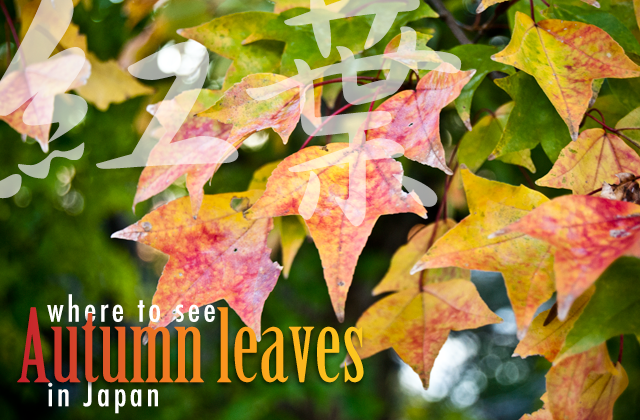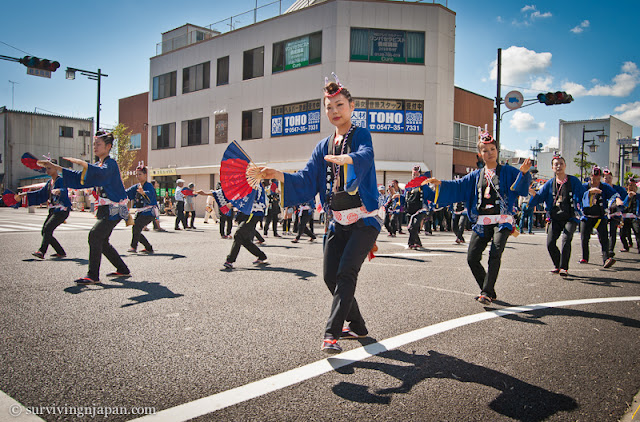We recently moved about half an hour away from where we lived for the past three years, in Shimada, Shizuoka. It was bittersweet to leave the apartment, as excited as I was for a change and the new chapter in our lives.
 |
| Bye bye, old apartment... |
That apartment was where my husband and I first moved into together after we getting married and spent those first years of our life together.
We brought our baby daughter home to that apartment.
It was also the place I was sick with labrynthitis for many months, trapped inside most of the time. The place where Surviving in Japan was born. The place I've lived the longest since I left home after high school almost 10 years ago now (has it really been that long!?).
But I knew the day would come to leave, and after weeks of frantic searching for apartments, only to have the good ones sometimes snatched up within half a day of being posted online, we found a nice one in a quiet neighborhood. We also didn't experience any problems considering that we're both American. I had heard about said problems, but no one seemed to not want to rent to us... In fact it seemed the opposite.
We'll be posting things related to moving over the coming months, but I won't throw everything all up at once as I don't want to wear out those who aren't moving and don't plan to move anytime soon.
I should also stress that unless you find an English-speaking real estate agent (it's possible, particularly in major cities) or have someone help you with the process, some aspects might be difficult (or impossible) to handle without much Japanese, unfortunately. But I'm hoping some of you will have experiences about that to share relating to the relevant posts as we post them.
But for today, let's look at how you can start your apartment search in Japan.
How to Find Apartments
1)
Seek out a real estate agent to look for you. Some agencies are available across Japan, such as
Able (エイブル) or
eheya.net, (these aren't recommendations, just a couple I know of) while others are region-, or city-specific. Aside from asking any folks you might know in the area, you can search for 不動産業者 plus the city (in Japanese) you plan to move to for potential real estate agents in that area.
James recommended the real estate agency
UR (available nationwide, but more so in certain regions):
"The largest network or danchis, foreigners welcome, no key money, all you need is a three month deposit. The other nice thing about UR is that, usually, they are quite low rent. I've got a nice spacious 4LDK in Nara for less than 100,000 yen a month. They're setup to appeal to young families and old people."
And if you're looking for a home in Tokyo, Nagoya or Osaka and want English support, you might try
Japan Home Search.
2)
Search on apartment listing sites. These usually contain listings from different real estate agents, but I found this to be one of the best ways to look for an apartment and also to know the main real estate agents in our area. I searched these obsessively and what I like best is that that you can adjust the search preferences, such as price, size, number of rooms, age of building, among other options (which we'll explain how to do in another post).
Some of the best/largest sites include, in order of ranking by
kuchiran:
1)
Suumo(スーモ)賃貸
2)
アパマンショップ (tied)
There are others on the list, some specifically real estate agents with listings on their websites, and there are several reviews for each (in Japanese).
I tried some of the above, plus a few others, and personally found Suumo and HOME's to be the best for our area in terms of selection, but as they all have slightly different listings (some places you'll see the same thing listed several times), it was worth checking them out individually. You can also sign up for notification emails based on particular preferences for apartments so you get an email when a new listing under your criteria shows up.
To start your search, a few words you need to know right off the bat:
| Japanese | Hiragana | Romaji | English |
| 賃貸 | ちんたい | chintai | rentals |
| 賃貸物件 | ちんたい ぶっけん | chintai bukken | rental property |
| アパート | - | apaato | apartment |
| マンション | - | manshon | apartment (large building) |
| 一戸建て | いっこだて | ikkodate | detached house |
| 不動産屋 | ふどうさんや | fudousanya | real estate agent |
| 不動産 | ふどうさん | fudousan | real estate |
| 借りる | かりる | kariru | to rent/lease |
What's the difference between an "apaato" and a "mansion"?
A "mansion" is not a giant, fancy building as you might infer from the word, but just a large, multiple-story (three or more usually) apartment or condo building made of reinforced concrete, steel or a combination of the two. One example is in the picture at the top of this post. The walls are obviously thicker, so sound doesn't carry as much (although that doesn't seem to apply to the
elephants children living above us now...) You'll see these under 賃貸 or 賃貸物件 for apartment rentals (so you aren't looking at buying a condo!)
An "apaato" is usually only two to three floors and made of wood or lightweight steel (which means sound carries more). They remind me a bit more of townhouses. Sometimes they are two-story single units with maybe four to eight units per building (depending on how big the building is). There are variations, of course.
***
All right, over to you. For those of you who've moved in Japan, how did you find your apartment/house/place you're living in now? What real estate agency did you use? Or which listings websites did you find had the best selection?
Coming soon: How to use apartment listing sites and a list of other topics related to the moving process!










































